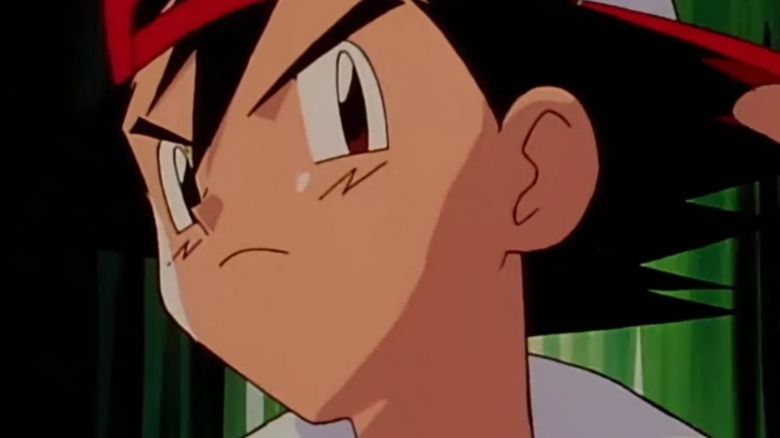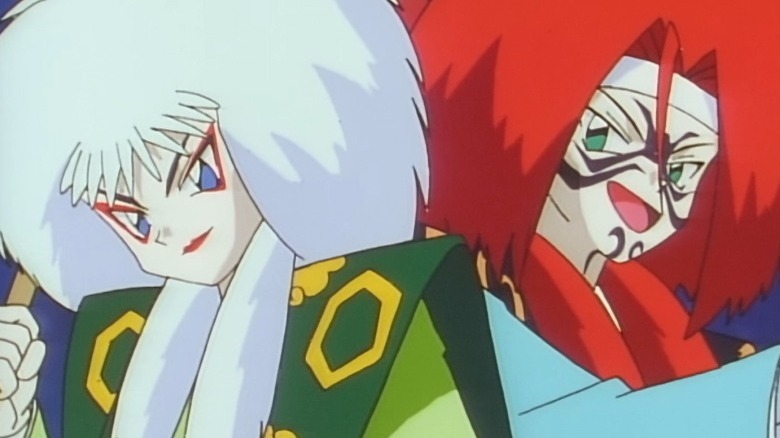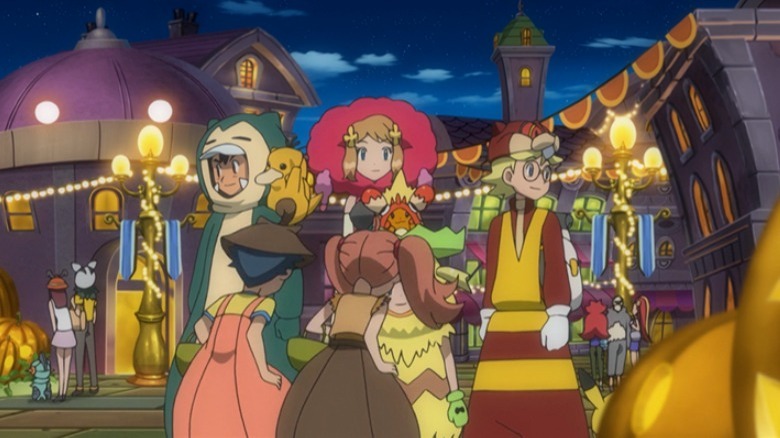This Country Has The Most Banned Pokémon Episodes
It's no secret that "Pokémon" is an incredibly successful franchise. Many fans might primarily be familiar with Game Freak's media empire through the video games or the trading cards, but it would be foolish to discount the tremendous impact that the "Pokémon" anime has had on the franchise's explosive popularity – particularly when it first aired in the late '90s. Ash Ketchum's quest to "be the very best, like no one ever was" played a major role in getting young people invested in their own Pokémon journeys all over the world, but fans in some countries might have seen less of Ash's infamous misadventures than others as many of the episodes have been banned in certain countries.
Some episodes were restricted for extremely good reasons. "Episode 38: Electric Soldier Porygon" was internationally banned after its first airing in Japan reportedly induced epileptic seizures in over 700 people due to a strobing effect present in many of the scenes. Another episode titled "Holiday Hi-Jynx" was banned in the U.S. due to the Pokémon's controversial design, which many pointed out resembled a racist caricature. That said, one country has refused to allow significantly more episodes of "Pokémon" to air within its borders than any other: South Korea.
20 episodes of Pokemon have been banned in South Korea
Only one episode of "Pokémon" has been banned in Japan, and there are seven episodes that were banned in the states. The South Korean government has banned no fewer than 20 episodes of the "Pokémon" anime – many of which appear to be remarkably inoffensive from the outside. While we can't definitively state the exact reason why so many episodes have been banned in South Korea, many believe that it has to do with the country's censorship bureau frequently restricting anything that might be perceived as "too Japanese." This is supported by the fact that many of the episodes on the banned list prominently feature things like traditional Japanese architecture, Samurai, Japanese cultural events, traditional Japanese clothing, Sumo, and other commonly recognized representations of Japanese culture.
These missing episodes frequently caused consistency errors for the show. For instance, "Episode 32: The Ninja Poké-Showdown," which featured ninjas and a scene involving Kabuki Theater, was banned despite being a narrative important episode in which Ash obtained the Soul Badge. This made it so South Korean fans of the show would be left confused when Ash inexplicably had an extra badge pinned to the inner lining of his denim vest in the next episode.
So, why might South Korea be inclined to ban Japanese television?
South Korea banned Japanese cultural imports for 53 years following occupation
To say that there is a lot of troubled history between South Korea and Japan would be putting it mildly. According to Erin Blakemore of History, "In 1910, Korea was annexed by the Empire of Japan after years of war, intimidation and political machinations; the country would be considered a part of Japan until 1945. In order to establish control over its new protectorate, the Empire of Japan waged an all-out war on Korean culture." This was an extremely oppressive occupation in which the Japanese government attempted to supplant Korean history and culture, forcing the peninsula's populace to learn Japanese in school and consume Japanese media.
Following the end of Japanese occupation, the South Korean government imposed a ban on Japanese cultural imports that lasted 53 years. It wasn't until October 1998 that it was finally announced the restrictions on Japanese cultural imports would start to be relaxed — about a year and a half after the debut of the "Pokémon" anime (per Variety).
Several of the banned episodes were first aired in the period right before the restrictions were eased while others were banned in the five year period that followed. The Japan Times reported that these restrictions were to be further relaxed in January 2004. This seems to track with the "Pokémon" bans as well, since the final banned episode was "Going, Going, Yawn" which came out in December 2003. No episodes have been banned in South Korea since.



